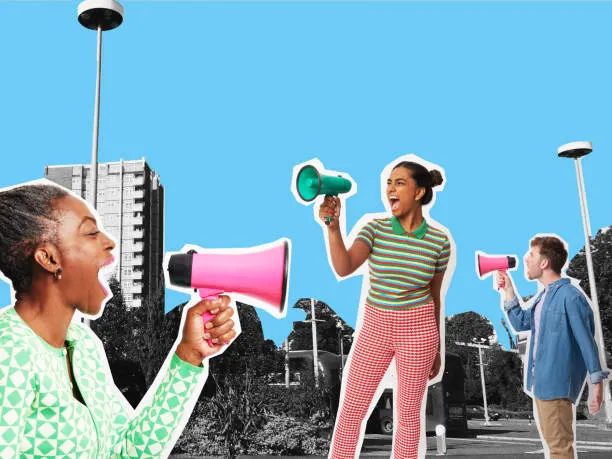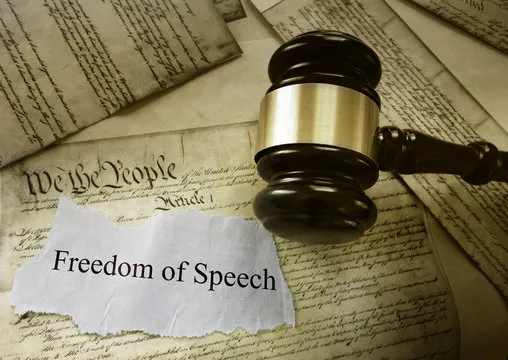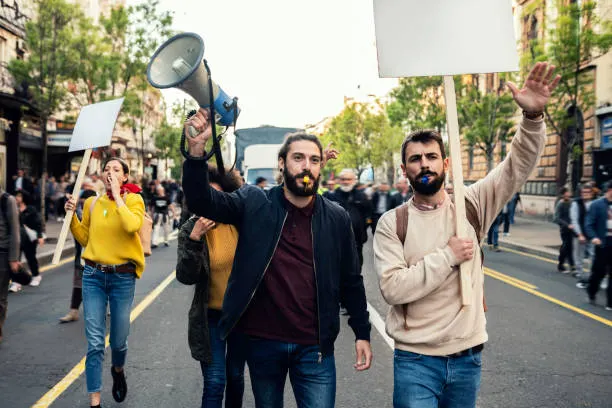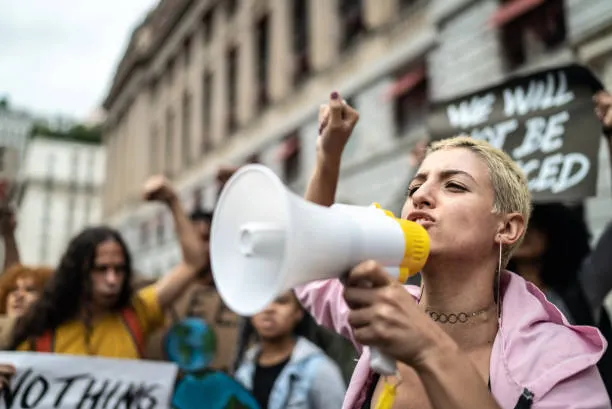The Fine Line Between Free Speech and Hate Speech
- In today’s world, where social media gives everyone a platform, the debate around freedom of speech and hate speech has become more heated than ever.
- While freedom of speech is a fundamental human right, hate speech can be dangerous and lead to violence, discrimination, and even crimes.
- The question is: Where do we draw the line? Should there be restrictions on speech, or does that violate our right to express opinions freely?

What is Freedom of Speech?
- Freedom of speech is the right to express opinions without censorship or punishment.
- It allows people to share ideas, criticize the government, and discuss controversial topics.
- Most democratic countries protect this right under their constitutions or laws.
- Examples of free speech in action:
- Protesting against unfair laws
- Criticizing political leaders
- Expressing religious beliefs
- Debating social and cultural issues
What is Hate Speech?
- Hate speech refers to any communication that insults, threatens, or discriminates against individuals or groups based on factors like:
- Race or ethnicity
- Religion
- Gender or sexual orientation
- Disability or physical appearance
- Political or social beliefs
- Hate speech is dangerous because it can lead to:
- Violence and social unrest
- Mental and emotional harm to targeted individuals
- The spread of misinformation and stereotypes
- Discrimination and inequality in society

The Global Debate: Freedom vs. Regulation
Arguments for Absolute Freedom of Speech
Many people believe that all speech should be protected, even if it is offensive. Their reasons include:
- Slippery slope argument – If we start restricting speech, where will it stop?
- Government control – Giving authorities the power to decide what is “hateful” can be dangerous.
- The power of open debate – Even offensive ideas should be challenged openly rather than censored.
- Who decides? – What is considered “hateful” can vary between cultures and individuals.
Arguments for Restricting Hate Speech
Others argue that hate speech should be controlled because:
- Words have consequences – Hate speech can lead to real-world violence and discrimination.
- Protecting vulnerable groups – Certain communities are historically oppressed and need legal protection.
- Social harmony – Restricting hate speech can help prevent conflicts and maintain peace.
- Online dangers – The rise of social media has made hate speech more widespread and damaging.

Legal Perspectives: How Different Countries Handle This Issue
Laws on freedom of speech and hate speech vary across the world:
United States
- The First Amendment protects nearly all speech, even offensive speech.
- Hate speech is not illegal unless it directly incites violence or threats.
- Courts protect even racist, sexist, and homophobic speech under “free expression.”
United Kingdom & European Union
- Hate speech laws are stricter in Europe.
- Speech that promotes violence, discrimination, or hatred is punishable by law.
- Social media platforms are often required to remove hateful content.
India
- India allows free speech but bans hate speech that promotes violence, insults religions, or threatens national security.
- Controversial figures and celebrities often get into legal trouble for offensive statements.
China & Authoritarian Countries
- Free speech is highly restricted.
- Criticism of the government can lead to arrest or punishment.
- Hate speech laws are often used to silence political opponents.

The Role of Social Media: A Double-Edged Sword
Social media platforms like Facebook, X (Twitter), YouTube, and Instagram play a major role in this debate.
How Social Media Promotes Free Speech
- Anyone can share their views without needing approval from traditional media.
- Activists use social media to expose injustice and demand change.
- Online discussions give people a chance to challenge harmful ideas.
How Social Media Spreads Hate Speech
- Hate speech spreads quickly and reaches a massive audience.
- Fake news and misinformation fuel hatred and division.
- Online harassment and cyberbullying harm individuals and communities.
What Are Tech Companies Doing About It?
- Social media platforms ban hateful content and remove dangerous users.
- They use AI and human moderators to track harmful speech.
- However, critics argue that these platforms silence certain viewpoints unfairly.
The Ethical Dilemma: Where Should We Stand?
This debate raises several ethical questions:
- Should free speech include the right to offend?
- Is banning hate speech a form of censorship?
- Should people be punished for words, even if they do not take physical action?
- How do we define what is truly “hateful” versus just “controversial”?
Finding a Middle Ground: Possible Solutions
Rather than choosing between absolute free speech and complete censorship, a balanced approach is necessary. Here are some possible solutions:
- Clearer definitions of hate speech – Laws should define what counts as hate speech to prevent misuse.
- Education and awareness – Teaching people about the dangers of hate speech and the value of free speech.
- Stronger penalties for actual harm – Hate speech that leads to violence or direct harm should be punished.
- Encouraging respectful discussions – People should be free to express opinions without personal attacks or threats.
- Holding social media accountable – Platforms should create fair policies that protect speech while limiting harm.
Conclusion: Balancing Rights and Responsibilities
- Freedom of speech is a fundamental right, but it comes with responsibility.
- Hate speech should not be tolerated if it causes real harm, but censorship should not be used to silence opinions.
- Finding the right balance is difficult but necessary for a just and democratic society.
Final Thought
Where do you think we should draw the line? Should all speech be protected, or do we need stricter laws against hate speech? Share your thoughts in the comments!
The Ethics of Artificial Intelligence: How Far Should We Go?






